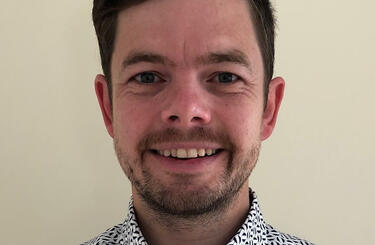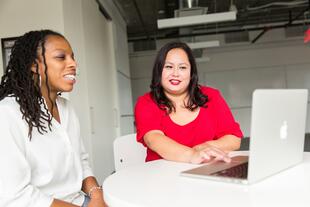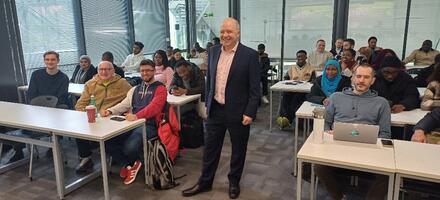
The power of volunteering
Progress indicator

As part of a series shining a spotlight on some of the many volunteer roles at the CQI, we speak to Dave Smith CQP FCQI about his role as Chair of the CQI Council.
What prompted you to apply to be a member of the CQI Council? And how did that evolve into you becoming the Chair?
I joined the CQI as a student member in 2003 but wasn’t active for a long time – in truth, I had no idea of the member benefits available to me, even when I became chartered in 2010. It was only when I received an email from the CQI in 2012 about electing members to the Board of Trustees that I mentioned to a work colleague that it would be something I would be interested in. His response was that I had never even attended a branch meeting!
I guess I must have opted out of some of the CQI’s emails because I had no idea about the various branches and events. So, I joined the mailing list again and that month went along to my first Wessex branch meeting with my colleague.
Coincidently, the meeting was also the AGM where they were electing new committee members and looking for a new secretary. I’d literally only been there for 20 minutes, of which 15 were spent enjoying coffee and biscuits, but after 60 seconds of uncomfortable silence, I said I would be happy to do it. And that was the start of my volunteering journey.
I enjoyed being part of the branch and what I lacked in secretarial skills I made up in interest and commitment. As a branch officer, I was invited onto the South West regional steering committee along with other branch secretaries and chairs in the area. Shortly afterwards at one of these regional meetings, it was announced that our Regional Operations Panel (ROP) (a partial precursor to the CQI Council) member was stepping down and that they were looking for a volunteer to take over. Again, I raised my hand and thus became the South West ROP representative in addition to the Wessex branch secretary.
A year or so later, when I was enjoying the coffee and biscuit break at an ROP meeting, I was approached by one of the CQI executive directors and told that the current chair was retiring next quarter and that they’d like me to consider taking over as chair (the role was an executive appointment at the time). I agreed and an announcement was made that afternoon.
I was the youngest and the newest member of that panel at the time, so must have made a good first impression. In 2017, we merged the Regional Operation Panel with the Advisory Council (AC) to create the Membership Council (MC). The AC chair and I led this process together. In merging of the councils, the AC chair said he was happy to be Membership Council Vice-Chair and support me as Chair. Six years later, I led another process to form the CQI Council, from the Membership Council.
So, from reading that one email, back in 2012 when I was a non-active member, to my current role now, I have kept volunteering.
The CQI has a very active network of volunteers. How important do you think this is to the work of the organisation?
Membership organisations need, and rely on, good volunteers; they are at the heart of the CQI. A few years ago, we conducted a piece of work to promote the health and maturity of our networks. We found that there was a direct correlation between the successfulness and activity of a network and the engagement of its volunteer base, particularly the chair; that was certainly my experience in the Wessex branch a decade ago.
We launched a network maturity model to provide support and sustainability that didn’t have to rely on a handful of ‘super volunteers’. Often those in senior volunteering roles have senior day jobs that demand a lot of time and attention; conversely, those in early careers may have less 'demand pressure' but do not have the opportunity or autonomy to take time away from their day jobs to volunteer.
Maturing our volunteering model that has created opportunity for everyone to utilise whatever time and talent they have has supported a healthier and engaged volunteer network that can thrive without having to rely on a few and far between super volunteers.
"I have really enjoyed all my time as a volunteer, and I would say I am a better leader and quality professional because of it."
What does your role with the Council involve?
As well as the governance related to electing trustees outline in our Royal Charter and by-laws we advise on the threats and opportunities relating to the achievement of the CQI’s objects for benefit of the public to advance education, knowledge and practice of quality in industry, commerce, public service, and voluntary sector.
We mainly do this through an annual event where we gather elected CQI members of all grades, known as ordinary members, and representatives from industry, allied professions, academia and education, quality infrastructure and regulators, known as stakeholder members. The 40 or so of us discuss and debate strategic themes and hot topics.
Having the diversity of membership is extremely valuable and insightful in supporting and challenging the CQI’s strategic direction driven by the Board and CQI Executive.
What kind of professional development have you gained since becoming involved as a volunteer at the CQI?
I put a lot of credit for my career success down to my work as a CQI volunteer, at branch level as well as Council level. I started my career in a small manufacturing company that had a quality department of two, and I was one of them, so my volunteer roles got me out into the big wide world beyond my organisation.
I found that just spending time in a room with people from different organisations and sectors, really helped me to understand things differently and progress. That diversity of thought is something I’ve really appreciated, as well as the opportunity to network with some extremely clever, senior and experienced people. Learning from them has really supported my career growth.
What was your journey into quality?
As so many people say when asked this question, I fell into it. I left school and went to work operating a machine in a factory and I can’t say I really enjoyed it, but it did make me think about my future. The company had an inspection department, and I thought that might give me more opportunity – if nothing else it was in an air-conditioned room, and you could sit down all day!
I asked for a transfer and started working there. There was only me and the quality manager so I had the opportunity to make the role, and to a degree, the department, my own. I started to study again part-time and graduated in Engineering at Bournemouth University. By then I had developed a good foundation in engineering and quality principles. It was only when I applied for a role in a multinational that I was able to utilise my knowledge and apply the practice. I was able to deploy improvement techniques, build governance frameworks and develop a culture of assurance beyond ‘quality control’.
I have, and still do, take a lot of pride knowing that processes are more efficient, products safer and businesses further profitable due to work I have done by utilising quality management principles. Now, as I have developed my career, I advocate for quality as a strategic asset and fundamental to the success of any organisation’s bottom line.
Why did you decide to join the CQI?
When I joined as a student member it was because I thought being a member of a well-recognised body would give me some kind of credibility and ,when I became an associate member (now affiliate), I thought the post nominals would look good on my CV. I didn’t realise at the time the benefit and opportunity being a CQI member and volunteer would bring.
What advice would you give to others who might be thinking of volunteering within the CQI?
I whole-heartedly recommend it, for a number of reasons. One, it gives you an opportunity to have that diversity of thought beyond your current doing day-to-day role. It is too easy to be drawn into your work and not look up long enough to see other things, so the opportunity to break away and look at what the rest of the world is doing is really helpful.
The second thing is that it gives you a great network of contacts that you can rely on and learn from. Also, it gives you the opportunity to support others as well and progress the profession, which is so rewarding.
I have really enjoyed all my time as a volunteer, and I would say I am a better leader and quality professional because of it.
CQI Mentoring

The mentoring programme has been designed to support you at different stages of your career.
Quality World

Get the latest news, interviews and features on quality in our industry leading magazine.



